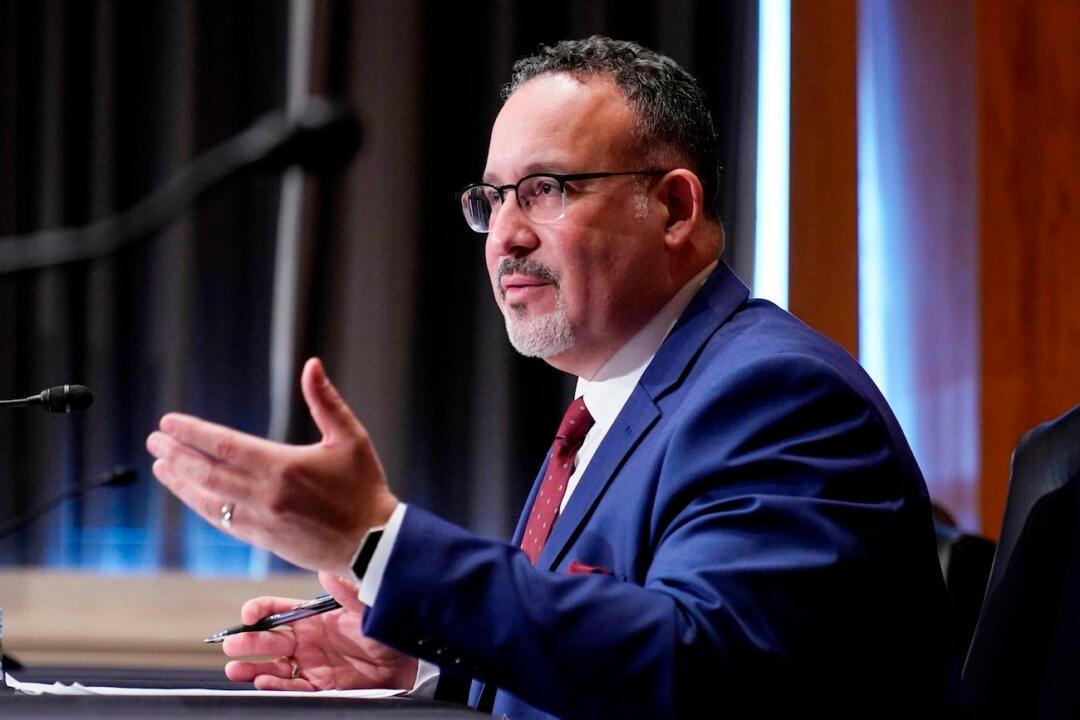Secretary of Education Miguel Cardona continued to place emphasis on increasing funding of mental health services in public schools at a hearing on May 11 before the Appropriations Committee on his historically high $90 billion proposed budget for Fiscal Year 2024.
The budget represents a $10.8 billion increase and a review of it shows that nearly every existing and new program contains substantial funding to increase mental health services in schools—including the doubling of what Cardona referred to as school social workers.




